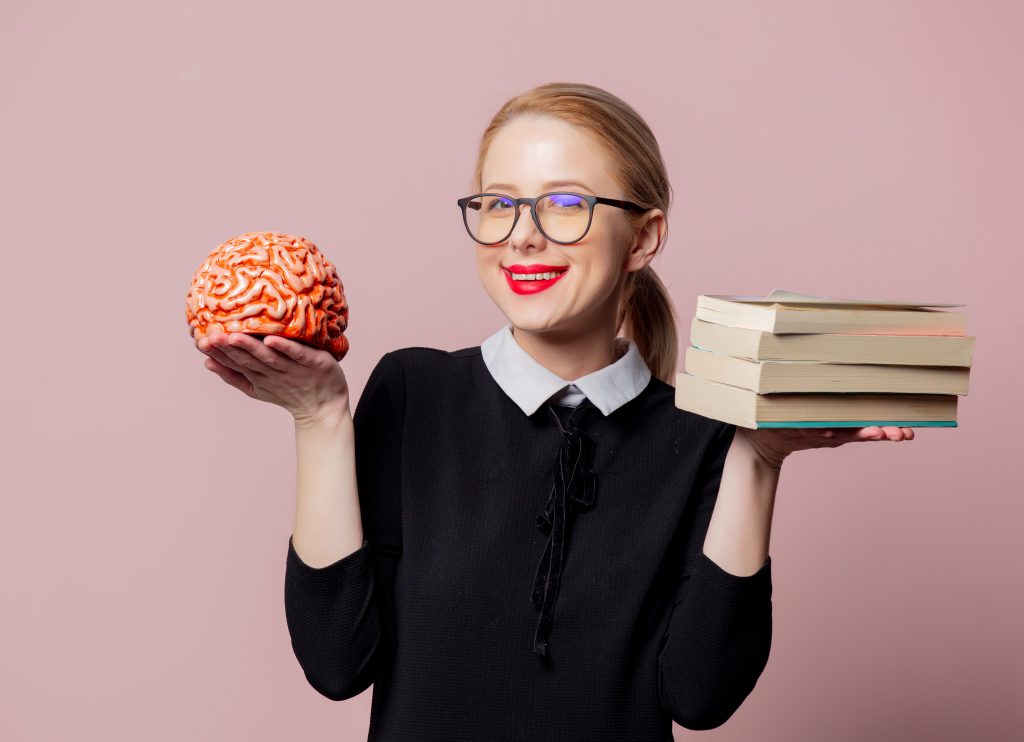Your brain is lying to you 95% of the time – and you don’t even know it! These 12 mind-blowing psychology facts explain why you make irrational decisions, trust the wrong people, and can’t break bad habits. These aren’t just fun facts – they’re secret weapons for better relationships, smarter work, and understanding yourself.

Have you ever caught yourself wondering, “Why did I just do that?” or “Why do people behave so strangely sometimes?” The truth is, our minds are full of quirks, shortcuts, and hidden processes that quietly shape our decisions, relationships, and even moods.
Psychology doesn’t just belong in textbooks, it explains everyday life.
Let’s dive into some fascinating psychology facts that reveal why we think and act the way we do.
Read article: Psychology Facts About Human Behaviour You Didn’t Know
12 psychology facts that reveal why we think and act the way we do
1. Most decisions are subconscious
You might like to think you’re in control of every choice you make, but studies suggest that up to 95% of our daily decisions are made unconsciously. Your brain uses mental shortcuts, called heuristics, to save energy. That’s why you sometimes grab the same coffee every morning without thinking or instinctively take your usual route home.
2. Emotions shape memory
We often forget the exact words someone said, but we never forget how they made us feel. That’s because emotional events activate the amygdala, which helps strengthen memory storage. This is why you vividly remember your first heartbreak or a thrilling concert, but not what you had for lunch three weeks ago.
3. The power of body language
Here’s something surprising: 65–70% of communication is nonverbal. Your posture, gestures, and facial expressions often speak louder than words. For instance, standing tall in a “power pose” can actually lower stress hormones and make you feel more confident within minutes.
So next time you’re heading into a meeting or interview, remember, how you carry yourself might matter more than what you say.
4. We crave social connection
Humans are wired for connection. The hormone oxytocin, often called the “bonding hormone,” is released during hugs, laughter, or even simple eye contact. It explains why loneliness can feel painful, some research suggests that chronic loneliness can be as harmful to health as smoking 15 cigarettes a day.
5. The brain loves shortcuts, but they create biases
Biases are little “hacks” our brain uses to make sense of the world, but they often trip us up. Take confirmation bias, the tendency to notice information that supports what we already believe and ignore evidence that contradicts it. Or consider loss aversion, we hate losing more than we love winning, which explains why people cling to bad investments longer than they should.
6. Habits rule our behaviour
Think about brushing your teeth, scrolling through your phone, or checking emails first thing in the morning. These actions run on habit loops: cue, routine, reward. Research shows it takes an average of 66 days to form a new habit. That’s good news if you want to build healthier routines, it’s a marathon, not a sprint.
7. Rejection hurts like physical pain
Social rejection isn’t just “in your head.” Brain scans reveal that being excluded activates the same brain regions as physical pain. That’s why a harsh comment or being left out can sting more than we’d like to admit.
8. First impressions happen in seconds
Like it or not, people form opinions about you almost instantly. In fact, it takes under seven seconds for someone to make a first impression, based largely on appearance and body language. The good news? Confidence and warmth usually matter more than perfect words.
9. Sleep boosts learning and creativity
Pulling an all-nighter might feel productive, but lack of sleep reduces focus, memory, and problem-solving skills. During sleep, your brain consolidates memories and even sparks creative insights. Many famous inventors and artists, like Thomas Edison and Salvador Dalí, credited dreams with inspiring breakthrough ideas.
10. Music alters mood and memory
Ever noticed how a certain song takes you straight back to a specific moment in your life? That’s called the reminiscence bump, and it’s because music stimulates multiple brain regions linked to memory and emotion. On a more practical level, upbeat songs can lift your mood, while calm music can lower stress and improve focus.
11. We’re more conformist than we realise
Even when we know something is wrong, we often go along with the group. This is called conformity bias. From fashion trends to political opinions, group influence is stronger than we’d like to admit, it’s rooted in our evolutionary need to belong and survive in tribes.
12. Smiling tricks your brain
Here’s an easy hack: smiling, even when you don’t feel like it, triggers the release of dopamine and serotonin, chemicals that improve mood. It’s a simple reminder that sometimes, acting the part can shift how you actually feel.
Why These Facts Matter
These psychological insights aren’t just fun trivia to share at dinner parties, they have real-life applications that can make a difference in how we live, work, and connect with others.
- Communicate better by paying attention to body language: Since most communication is nonverbal, learning to read posture, tone, and facial expressions helps us pick up on what people really mean. Equally, being aware of our own body language can make us appear more confident, approachable, and trustworthy.
- Improve relationships by understanding empathy and emotions: Recognising that emotions shape memory and behaviour allows us to respond with kindness rather than judgement. Empathy, seeing things from another person’s perspective, strengthens friendships, family ties, and even workplace collaborations.
- Make smarter decisions by recognising our biases: Our brains love shortcuts, but biases such as confirmation bias or loss aversion often lead us astray. By being aware of these hidden influences, we can challenge our assumptions, weigh options more clearly, and avoid costly mistakes.
- Boost productivity by using habits and sleep to our advantage: Habits run much of our daily life. Understanding the “cue–routine–reward” loop means we can replace unhelpful routines with positive ones. Pair this with quality sleep, which strengthens memory and creativity, and you have a recipe for higher performance.
- Live healthier lives by valuing connection and reducing stress: Humans are wired for connection. Meaningful relationships release hormones like oxytocin, which reduce stress and improve well-being. When we combine strong social ties with simple stress-management habits, like gratitude, deep breathing, or exercise, we nurture both our minds and bodies.
Final thought
Human behaviour is complex, but psychology gives us a lens to understand it better. From why rejection stings to how music can heal, these facts remind us that our thoughts and actions are shaped by forces both visible and invisible.
The more we understand these hidden influences, the better we can navigate life, making choices that are not just automatic, but intentional.
After all, psychology doesn’t just explain who we are; it gives us the tools to become who we want to be.

Himani Verma is a seasoned content writer and SEO expert, with experience in digital media. She has held various senior writing positions at enterprises like CloudTDMS (Synthetic Data Factory), Barrownz Group, and ATZA. Himani has also been Editorial Writer at Hindustan Time, a leading Indian English language news platform. She excels in content creation, proofreading, and editing, ensuring that every piece is polished and impactful. Her expertise in crafting SEO-friendly content for multiple verticals of businesses, including technology, healthcare, finance, sports, innovation, and more.









